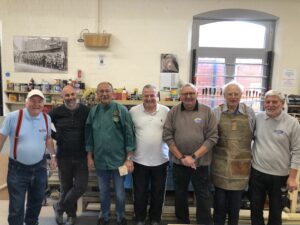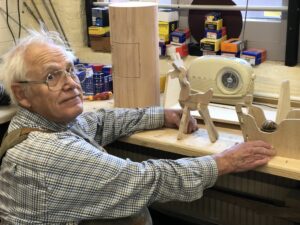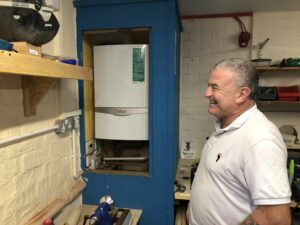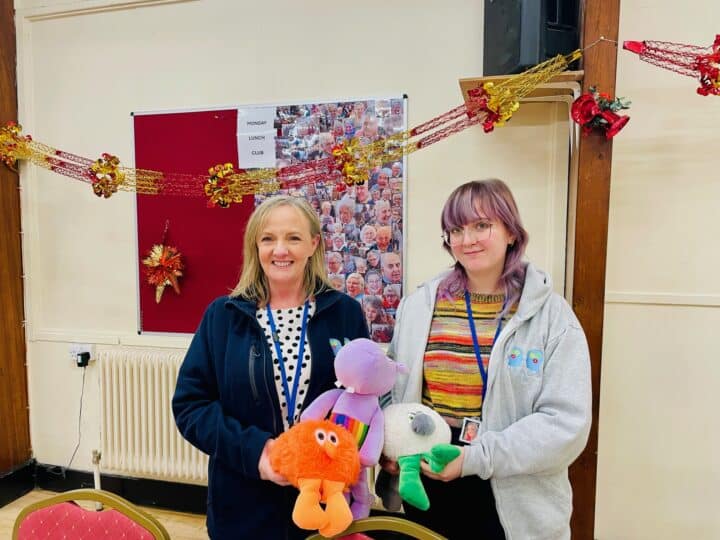-
About
About
Local Trust is a place-based funder supporting communities to achieve their ambitions.
Find out moreGo straight to…
< Back to main menu -
Big Local
Big Local
Big Local is an exciting opportunity for residents in 150 areas to create lasting change in their communities.
About the programme< Back to main menuSupport centre
Essential guidance, information and ideas for Big Local partnerships, to help you deliver change in your community.
Visit the support centre -
Other programmes
Other programmes
Find out how the principles of Big Local have inspired other programmes creating change in local communities.
< Back to main menuCommunity Leadership Academy
Supporting volunteers involved in Big Local projects to develop their skills and knowledge.
Find out moreCreative Civic Change
This new approach to funding enabled communities to use art and creativity to make positive local change.
Find out more
-
News and stories
News and stories
The latest news and stories from Big Local areas and beyond, exploring community power and resident-led change.
ExploreGo straight to…
< Back to main menuVoices of Big Local
Inspiring stories from the people making change happen in their communities.
Read more - Insights
- Policy

-
About
About
Local Trust is a place-based funder supporting communities to achieve their ambitions.
Find out moreGo straight to…
< Back to main menu -
Big Local
Big Local
Big Local is an exciting opportunity for residents in 150 areas to create lasting change in their communities.
About the programme< Back to main menuSupport centre
Essential guidance, information and ideas for Big Local partnerships, to help you deliver change in your community.
Visit the support centre -
Other programmes
Other programmes
Find out how the principles of Big Local have inspired other programmes creating change in local communities.
< Back to main menuCommunity Leadership Academy
Supporting volunteers involved in Big Local projects to develop their skills and knowledge.
Find out moreCreative Civic Change
This new approach to funding enabled communities to use art and creativity to make positive local change.
Find out more -
News and stories
News and stories
The latest news and stories from Big Local areas and beyond, exploring community power and resident-led change.
ExploreGo straight to…
< Back to main menuVoices of Big Local
Inspiring stories from the people making change happen in their communities.
Read more - Insights
- Policy

‘A place where nobody judges’: The men’s shed of Mablethorpe
For Men's mental health month, Harriet Marsden spoke to the group behind the men’s shed of Mablethorpe about the importance of the project and supporting men's mental health.
Mablethorpe, a quiet seaside town, sits halfway between Grimsby and Skegness on the golden expanse of the East Lincolnshire coastline. Typical places to socialise might include the windswept beach, over a cup of tea in a warm cafe… or over a table saw in a shed.
On Victoria Road, just a few minutes from the Promenade, is the Mablethorpe ‘men’s shed’ – part of a UK-wide network of spaces for groups to gather, socialise and support one another. On Monday to Saturday, 9am to 1pm, and now Wednesday evening, Mablethorpe men – and, as it happens, three women – come to learn DIY skills, or work on projects to sell to local businesses. The shed provides the equipment (and protects spouses’ ears from noisier saws), but mostly it offers space to share camaraderie: a practical solution to boredom and social exclusion.
The main objective I think is to get people out of their houses”.
Brian Norris, the chairman for about three years, describes it as “a workshop where people can come, use all the equipment we’ve got, make stuff for themselves or the community, but the main objective I think is to get people out of their houses”.
Once a bustling seaside resort, appearing as an exciting holiday destination in D. H. Lawrence’s Sons and Lovers (1913), Mablethorpe has suffered since the loss of its train station in 1970 and now – like much of the county’s coastline – moves at a much slower pace. The area is isolated from nearby cities, and accessible by irregular buses and poorly maintained roads. In Mablethorpe, which along with neighbouring Trusthorpe and Sutton-on-Sea makes up the Big Local area known as Coastal Community Challenge, one of the main issues residents face is loneliness.
“A lot of people have moved away from here, so they miss the camaraderie and the banter that goes on.”
Brian, who also organises events like Chinese buffet night, Christmas dinners and fitness workshops, explains that many of the older men are suffering from the loss of their wives or friends. “A lot of people have moved away from here, so they miss the camaraderie and the banter that goes on.”
We’re talking in a small back room, where his voice echoes richly and shows his 20 years as a radio DJ. The room is set aside specifically for members to chat to each other, “a quiet room where we can talk about issues”.
Brian says that anyone is welcome in the Mablethorpe shed, women included. I ask if the female members are ever the subject of ‘banter’; Brian replies that actually, they’re giving the washing up to do. Of course, he’s joking – it’s as welcoming a space as is possible to be, for the amount of naked blades and saws. I meet a French man, Michel, who’s staying in Mablethorpe for three months to learn English. It’s his first day in the men’s shed, but he already seems part of the gang.
This is a place where nobody judges anybody.”
Ken has been coming to the shed for two years, ever since he moved to Mablethorpe. He found it on his daily dog-walking route. Ken, 73, who is retired, says the shed “gets me out the house so I actually talk to people, which I wouldn’t do if I wasn’t coming here”.
“I’m not someone who needs an awful lot of company, but it’s very pleasant to have it when you get it. I’m very lucky, I have a wife I can talk to, and we get on very well, but some of these chaps haven’t got that. But it also fulfils a place where you can go and talk about man stuff. I’m an engineer, so I can find someone around here who wants to talk about engineering – like with that French chap over there. You can’t do that with your wife, because she’s not really interested.”
Ken, who is making models of Christmas ornaments for locals like reindeer pulling a sleigh, says: “The women do join in with the banter – if you’re thinking in terms of sexism, that doesn’t really happen. But there are some things they’re interested in that we’re not.”
Brian is very clear: “This is a place where nobody judges anybody.”
I’ve got a lot out of it, self-belief is a lot better than it was, and it gave me something to work towards, something to do.”
One member, John, originally from Northampton but now a Mablethorpe resident, tells me that coming to the shed has transformed his mental health. John, 56, says: “I suffer from depression, so associating with people tends to be a hard thing. But just one day I was walking by the shed and I saw Brian was in here, who I know from NHS volunteers. So this was somebody I knew, so I just came through the door, and I’ve been coming ever since.”
John is also a single parent, since his wife left him and their two small children for someone else. Although he was completely new to woodwork, the first thing he made was a toy box for his son. “I’ve got a lot out of it, self-belief is a lot better than it was, and it gave me something to work towards, something to do.”
Everybody’s there to help each other. If you’re struggling or if you need something, there’s usually somebody to turn to to help you. More like a family.”
He now comes to the shed at least three times a week, sometimes six times, while he looks for a job. “Everybody’s there to help each other. If you’re struggling or if you need something, there’s usually somebody to turn to to help you. More like a family.”
At the time of writing, there are nearly 600 men’s sheds in the country, with male mental ill health and suicide rates one of the most pressing national concerns. The shed also contains a wealth of information about men’s health issues like prostate cancer, depression and suicide, leaflets which anyone can pick up and take away.
John was receiving regular therapy through the council, but since joining the men’s shed they’ve signed him off. “Everything’s changed. Yes I’m still on medication for depression, but now I can get up in the morning.”
Harriet is Local Trust’s journalist at large. She is travelling the country meeting communities in Big Local areas and writing about their stories.
If your Big Local has a story to share, a project you’re keen for Harriet to come and see, or if you just want to say hi and have a chat, get in touch via email or Twitter.






